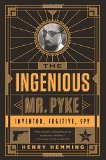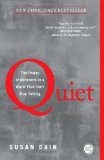Summary | Excerpt | Reviews | Beyond the book | Read-Alikes | Genres & Themes | Author Bio

Do you ever wonder why it is so easy to come up with answers to questions you aren't expecting? Such as: What is my mood right now? Or maybe: How popular will the president be in six months? Or perhaps: Jennifer learned to read when she was four. What will her GPA be in college? No? Me neither. But this is just the first of many questions I never thought to ask that are answered and explained in Thinking, Fast and Slow by Daniel Kahneman.
Being a fan of psychology, I found Kahneman's work a fascinating look at the way humans make decisions. This book is aimed at the water-cooler set; it is not written just for psychologists or economists or grad students, but for you and me. Daniel Kahneman is a respected scientist in his field and has published widely in academia - but his goal here is to help the average person understand how they make decisions and how to avoid the most common errors human minds tend to make.
Kahneman spends some time examining all the different kinds of decisions people make - whom to hire, where to go on vacation, what stock to buy or sell - and breaks them down into pieces to show us where the brain is primed to make mistakes and hopefully helps us catch those mistakes before we chose the wrong thing for the wrong reasons. Which is something that - according to hundreds of studies - many of us do much of the time. This book is not for those with fragile egos.
One of Kahneman's main points is that the brain is lazy and looks for the easiest answer that makes the most sense. So, for instance, if you are asked your opinion on the safety of air travel, your answer will be heavily influenced by any recent coverage of airplane crashes, though the likelihood of any one airplane crashing is incredibly small. The intuitive part of your brain (which he calls System 1) will generate an answer based on the most accessible data, which might be the plane crash you saw on the news last night. The analytical part of your brain (called System 2) may not look too closely at that answer and just agree that airplane travel is dangerous.
Science writing can be difficult to make interesting, but Kahneman does a good job of constantly engaging the reader in real examples for each idea that he presents. I found myself answering the questions he asks (questions that were used in controlled experiments to demonstrate how different systems of the brain work) and being irritated with myself for falling into the same errors that the subjects of his experiments did. I'm supposed to be smarter than them, right? But of course, that is another of his main points - we all understand statistics, but we often assume that those statistics don't apply to us. But of course that can't possibly be right - most of us have to be in the 95%, don't we?
One of the most interesting tidbits in the book - especially in light of recent economic conditions - is that the educated financial guesses of mutual fund managers are no more accurate than blind guesses. Yet most of these managers believe that all the effort and experience they bring to those decisions make a big difference. Kahneman is careful to say that the issue isn't really with their lack of skills, but rather our inability to accept that the world is much more complicated than we'd like it to be - System 1 likes simple, uncomplicated answers.
If you like reading Malcolm Gladwell, or if you enjoy exploring the inner workings of the human mind, this book may be for you. This is the kind of book that smart business people will be using as a reference for successful decision-making for years to come.
![]() This review was originally published in The BookBrowse Review in January 2012, and has been updated for the
April 2013 edition.
Click here to go to this issue.
This review was originally published in The BookBrowse Review in January 2012, and has been updated for the
April 2013 edition.
Click here to go to this issue.

If you liked Thinking, Fast and Slow, try these:

by Henry Hemming
Published 2016
The untold story of an enigmatic genius who changed warfare forever.

by Susan Cain
Published 2013
An extraordinary book with the power to permanently change how we see introverts and, equally important, how introverts see themselves.
Your guide toexceptional books
BookBrowse seeks out and recommends the best in contemporary fiction and nonfiction—books that not only engage and entertain but also deepen our understanding of ourselves and the world around us.